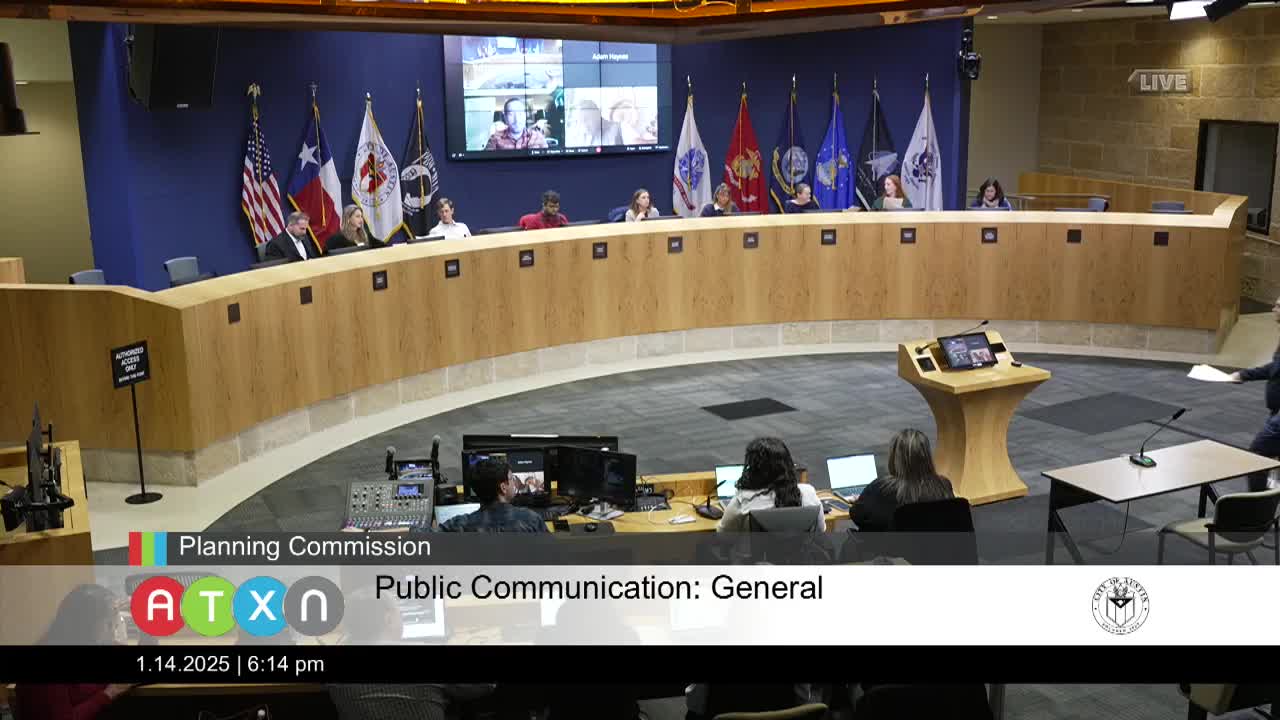Public commenters urge environmental review for MoPac South expansion; Hayes Commons hearing postponed
Get AI-powered insights, summaries, and transcripts
Subscribe
Summary
During public communication the Planning Commission heard comments urging a full environmental impact statement for the MoPac South expansion and noted the postponement of the Hayes Commons item. Speakers raised concerns about environmental impacts across the recharge zone, induced demand, and alternatives to highway widening.
At the start of the Planning Commission meeting, public commenters urged the commission to press for stronger review and alternatives for regional transportation projects and flagged a separate agenda postponement.
Philip Wiley, representing the Downtown Austin Neighborhood Association, asked commissioners to consider downtown priorities and coordination between downtown and the University Neighborhood Overlay, and said his group intends to return with focused suggestions for transition areas including the MLK corridor.
Bobby Levinsky, an attorney with Save Our Springs Alliance, told the commission that item 18 (Hayes Commons development) had been postponed and used his time to highlight the MoPac South expansion. Levinsky said current proposals constitute a significant highway widening over the Edwards Recharge Zone, that the project is being advanced under an environmental assessment rather than a full environmental impact statement (EIS), and urged commenters to demand a full EIS from the Central Texas Regional Mobility Authority (CTRMA). He said the project as proposed would widen MoPac by adding auxiliary lanes and reconfiguring ramps, which he described as a seven‑lane cross‑section in places, and warned of induced‑demand effects and potential sprawl on large parcels at the highway’s end.
Levinsky (sic) also said the City Council recently passed a resolution requesting alternative designs and that he planned to circulate a map showing parcels vulnerable to sprawl to community members. Chair Hempel and staff noted the public comments; the commission did not take formal action on MoPac South during the meeting.
Why it matters: commenters framed MoPac South as an environmental and planning issue with regional implications — they urged a higher level of environmental review and alternatives analysis rather than proceeding under an environmental assessment.
What happens next: item 18 (Hayes Commons) was announced as postponed; public commenters said they would submit formal comments on the MoPac South environmental review and that community groups would continue outreach.
